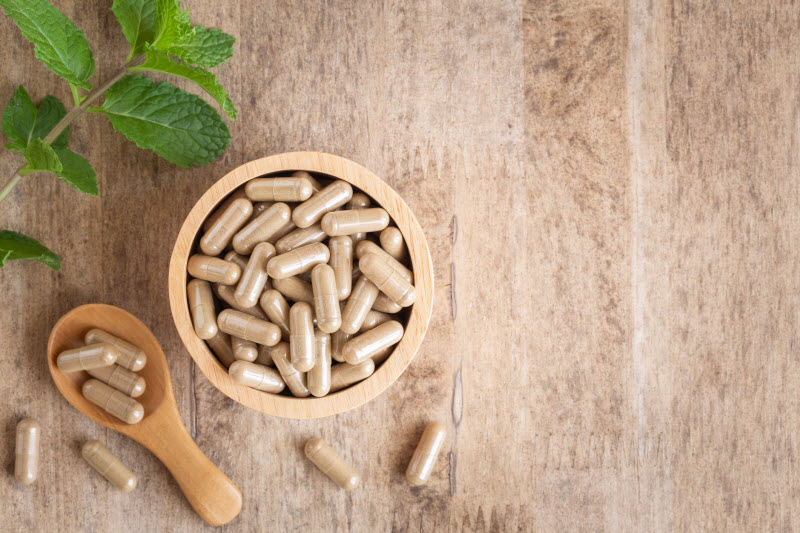People have turned to herbal remedies for thousands of years. Although they’re not tested or regulated like traditional medicine, some people claim the benefits of herbal remedies include preventing disease, boosting energy and promoting relaxation.
These days, a popular way for people to embrace herbal remedies is by taking herbal supplements. However, unless herbal supplements are taken as directed, they can lead to side effects. The U.S. Food and Drug Administration (FDA) regulates herbal supplements, but FDA approval is not required for an herbal supplement to be sold.
“Unlike conventional drugs, herbal products are not regulated for purity and potency,” according to research published in 1999 in the journal American Family Physician. “Thus, some of the adverse effects and drug interactions reported for herbal products could be caused by impurities … or batch-to-batch variability. In addition, the potency of an herbal product may increase the possibility of adverse effects.”
Johns Hopkins Medicine recommends that if you experience side effects such as nausea, dizziness, headache or upset stomach while taking an herbal supplement, you should cut back on the dosage of the supplement or stop taking it altogether.
So, what side effects should you watch for when taking herbal supplements? Here’s a review of six herbal supplements and some of their potential side effects.
Herbs’ Side Effects
Garlic. Taken for heart health, including cholesterol and blood pressure support. Possible side effect: Excessive bleeding in people taking blood-thinning drugs like warfarin. †
Ginkgo (Ginkgo biloba). Taken for mood and memory support, eye health and blood vessel health. Possible side effect: Excessive bleeding in people taking blood-thinning drugs like warfarin.†
Kava. Used for relaxation and sleep support. Possible side effect: Severe liver damage.†
Licorice root. Used for digestive health, relief from menopausal symptoms and immune support. Possible side effect: Increased blood pressure.†
John’s wort. Taken for mood support. (The National Center for Complementary and Integrative Health cautions that St. John’s wort isn’t consistent in effectively treating depression.) Possible side effects: Anxiety, upset stomach, weakening of effectiveness of antidepressants and other medications.†
Yohimbe. Taken for sexual health, athletic performance, weight support and blood pressure health. (The U.S. prohibits marketing over-the-counter products containing yohimbe as treatments for erectile dysfunction without FDA approval.) Possible side effects: Increased blood pressure, increased heart rate, stomach problems and anxiety.†
The Mayo Clinic points out that you should consult your health care provider about taking herbal supplements if you’re:
- Taking prescription or over-the-counter medications, as mixing medications with herbal supplements can trigger side effects.
- Pregnant or breastfeeding. Herbal supplements that may be safe for you may harm your baby.
- Undergoing surgery. Many herbal supplements can reduce the effectiveness of anesthesia or cause dangerous complications, such as bleeding.
- Younger than 18 or older than 65. Few herbal supplements have been tested in kids or have established safe doses for them, while older adults may metabolize herbal supplements differently.
“Health care providers … may neglect to ask patients about the use of over-the-counter or natural dietary supplements,” Harvard Health Publishing advises. “Without that information, they may not recognize that any signs and symptoms their patients may be experiencing could be related to these products.”
The bottom line for herbal supplements: Educate yourself about their side effects, their interaction with your medications and their ingredients.
“Just like with your prescription or over-the-counter medications, herbal supplements can produce some powerful effects on your body,” according to Oregon State University’s Moore Family Center. “While some herbal supplements may have benefits that outweigh the risks, there are certainly many for which this is not the case. Remember, herbal supplements are not intended to replace a healthy, well-balanced diet.”
†These statements have not been approved by the Food and Drug Administration. These products are not intended to diagnose, treat, cure or prevent disease.

